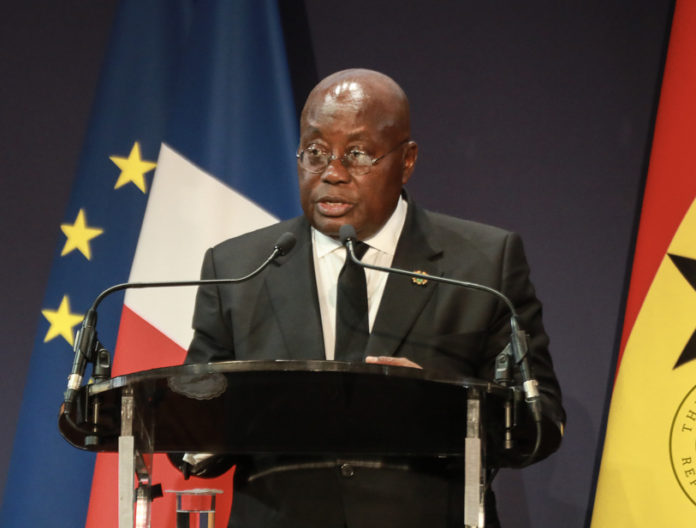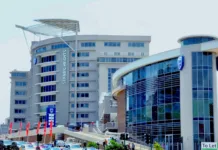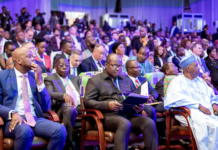
Ghana won the bid to host the Secretariat of Africa’s Continental Free Trade Area (AfCFTA) on the 7th of July 2019 in Niamey, Niger, during the 12th Extra-Ordinary Summit of the African Union Heads of State and Government. Great commendation goes to the Ghana Team and all those who worked behind the scenes diplomatically to ensure this outcome for Ghana. However, beyond the Secretariat, the benefits of the AfCFTA are neither automatic nor ‘decreed’ even as potentially, they can be numerous for many Ghanaians.
There is much more work to be done in terms of; i) what products that will pass as African products (rules of origin in trade language) so as to prevent non-African products from flooding the Ghanaian and the larger African market under the guise of AfCFTA and ii) which sectors in Ghana that need protection in the medium to long term, from products from other African countries (sensitive and exclusion list). These issues are fundamental for value creation within Ghana’s economy and are yet to be finalized in the AfCFTA negotiations. Just like the Secretariat, these issues, equally, if not more, demand the attention of Ghanaians.
AfCFTA is an important pillar of Africa’s economic integration. So, in 2015 the Heads of State launched the AfCFTA negotiations in Johannesburg, South Africa. Phase I of the negotiations focused on how goods and services will be traded. Implementation of the AfCFTA was launched in Niamey by the Heads of the State in July 2019, though more work remains to be done.
Surely, Ghana as host to the Secretariat will benefit from some limited opportunities in terms of administrative jobs, cleaning services, rental services, security personnel, hosting of conferences, among others, for Ghanaians. Besides, a few technical positions, which I guess will be based on regional quotas, will be available. But these technical positions will be captured by people with the top-rated skills and experiences in the area of trade and development in Africa. The majority of Ghanaians will have to look outside this category for any benefits of the AfCFTA.
How the AfCFTA will throw up benefits in terms of jobs, incomes, food, decent living for all categories of people such as women in rural agriculture, informal traders, youth, peasant farmers, Ghanaian private sector and the overall development of our country require much engineering. Important in that engineering is i) how the nationality of the products is defined (rules of origin in trade language) and ii) the sensitive and excluded list. These are critical for building the productive base and connections for value creation within the Ghanaian economy.
For protecting, some sectors in the medium to long term (sensitive and exclusion lists) it will follow how the Heads of State agreed that the trade opening should be done: three categories. First, ninety (90) per cent of goods coming into the country from the rest of Africa (party countries) will enter duty-free, quota-free. That is, they will enter without customs duties charged on them when the Agreement is operational.
Secondly, another seven (7) per cent of goods, which Ghana together with ECOWAS, will consider being sensitive to our development, and require protection in the medium term, will be liberalised within the next 10 years for developing countries (Ghana, Nigeria, Cote D’Ivoire and Cape Verde) within ECOWAS. The rest of the countries, which are least developed (LDCs), for this category, will liberalise within 13 years. However, within ECOWAS, the LDCs agreed during the negotiations to open up just as the developing countries.
The final category of goods (the 3 per cent) will be the excluded ones. Those products that will be captured under this list will be excluded from liberalisation but subject to review every five years. Duties will apply to the importation of like products from the rest of Africa. The rationale is to protect domestic producers in these sectors as long as the agreement is enforced.
From the above scenario, some concerns are emerging. First of all, the opening of trade means that Ghana can only protect a limited number of products. All other products will have to compete with similar products from Kenya, Egypt, South Africa, Nigeria among others. Ghanaian products will face the same in the party countries. That is why some trade experts in Africa have raised the dangers of big players displacing weaker ones because the scope for protecting local producers is very limited.
Secondly, the specific products in the various categories, especially the sensitive and the excluded, and the logic behind their selection should be our concern. At the moment, because ECOWAS is negotiating as one bloc (because of a common external tariff) it has to agree on one list to ensure coherence. That calls for consultation at both the country level and also at the regional level. That is, we as Ghanaians, need to agree on the list of products that need to be protected before moving to the regional level for consultation. Currently, the products in the various categories for Ghana, how the selection is done, and the logic is unclear.
One of the criteria in that selection should be how the lists align with our national development agenda. That again, calls for the involvement of key institutions such as the National Development Planning Commission (NDPC), other key institutions and various stakeholders in Ghana from the private sector, academia, research institutions and civil society organisations. This will enhance ownership and success of the implementation of the AfCFTA.
Experience from economic development in other jurisdictions shows that countries, under such free trade areas, at times, decide to protect whole sectors and their related connections. For instance, take tomato products, if Ghana decides to protect fresh tomatoes and allow the importation of tomato paste, it will disconnect production from value addition and transforming that sector with the needed local connections will be difficult. Because others can simply import the tomato paste and repackage them for the domestic market.
Comparing the opening under the AfCFTA with the trade agreements deposited at the World Trade Organisation (WTO), the liberalisation under the AfCFTA is one of the most ambitious ones. That is why throughout the negotiations some trade experts expressed concerns on the breadth and scope of liberalisation. Big firms can capture the market and displace the local and emerging industries and that calls for protection.
The determination of what products that can pass as African products (the rules of origin), is fundamental in ensuring the linkages for value addition in the domestic economy and also among member states. As stated earlier, the gains from the AfCFTA are not automatic. We have to deal with our productive capacity.
Addressing Ghana’s productive capacity and the necessary connections require that the rules be defined taking into consideration our context where the majority of our people are in rural agriculture, petty trading, informal cross border trading and light manufacturing among others.
As captured by the United Nations Conference on Trade and Development (UNCTAD) in its report on Economic Development in Africa, 2019, how the rules are designed, enforced and verified will critically determine the size and distribution of the economic gains from the AfCFTA.
If the rules are defined loosely that will be the basis for foreign products to flood the Ghanaian market. Take the agricultural sector, for instance, there are lots of imports of dairy products, tomatoes, poultry, rice, into Ghana and the rest of Africa from China, EU, the US and many more. Some just import these products and repackage them for distribution.
On the other hand, if the rules of origin are too strict so that local materials can be used, instead of foreign inputs, they can also be problematic. Especially when lots of intermediate inputs are already imported by businesses operating in Ghana. Stringent rules of origin can prevent the smooth operation of cross-border supply chains.
This then requires development engineering to get the right balance and dynamism. Developing local inputs, where they do not exist might take time and hence demands dynamism in how the rules are defined. One way is to subject the rules to review so as countries develop local capacities as the years go by, then the rules are tightened to allow more usage of local inputs.
From the above, it should be clear that the development of Ghana’s capacity to produce and ensuring the needed linkages require much more than a secretariat. There are three main pillars of integration namely the productive base, the related trade infrastructure and market integration. What the AfCFTA is fulfilling much more is the market integration. But we have to deal with the productive capacity and the needed trade infrastructure.
Dealing with the productive capacity and the needed linkages requires that we are clear on what products will pass as African products and the sectors that should be protected in the medium to long-term. These are extremely important going forward and I think, Ghanaians deserve a briefing by the Ministry of Trade and Industry.
By Sylvester Bagooro, sbagooro@twnafrica.org




